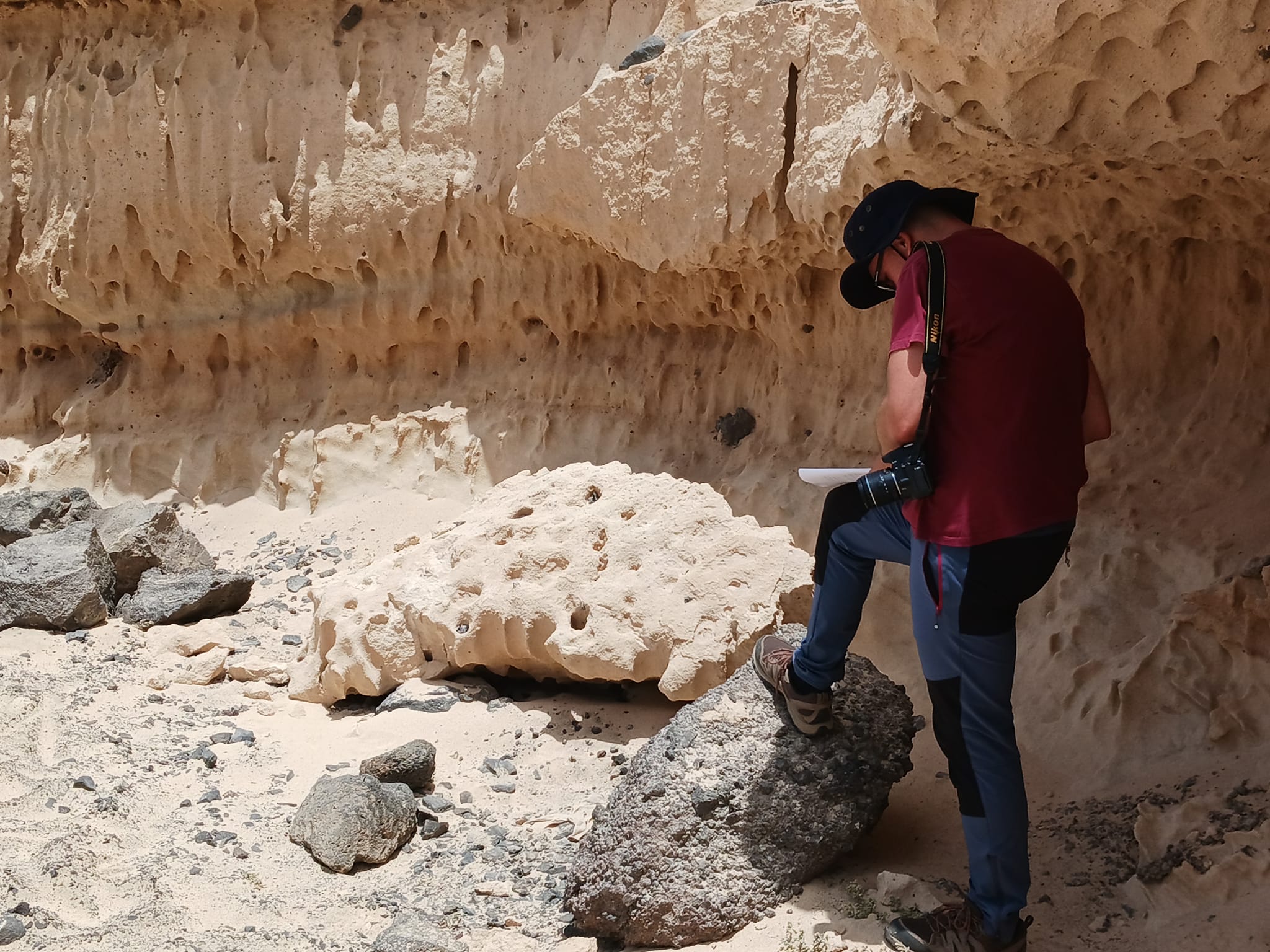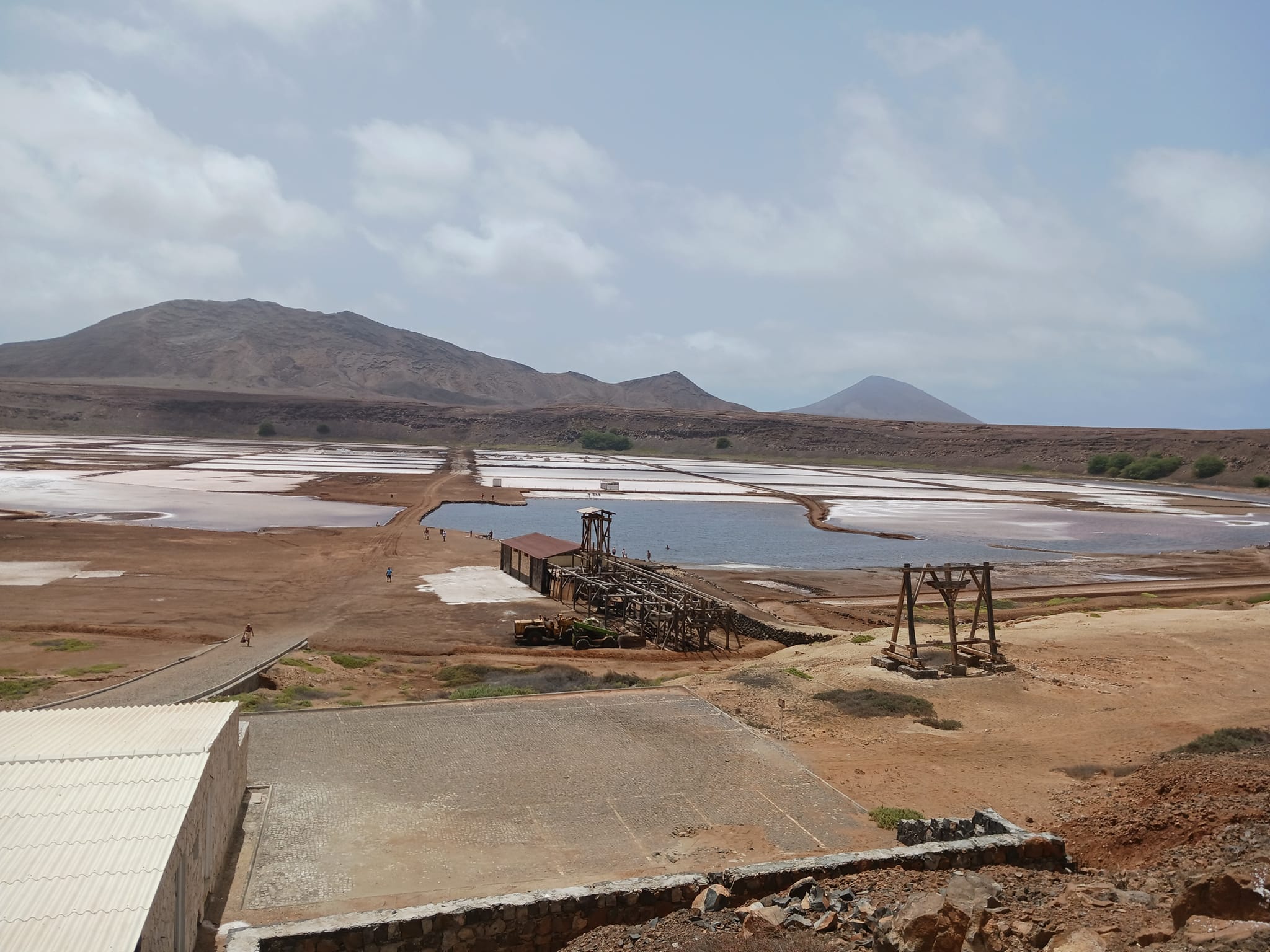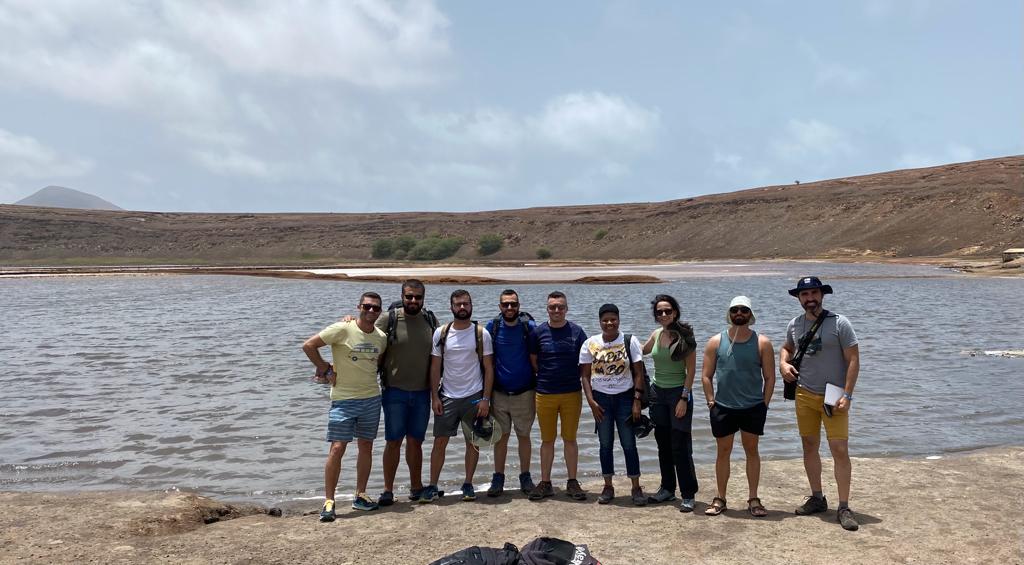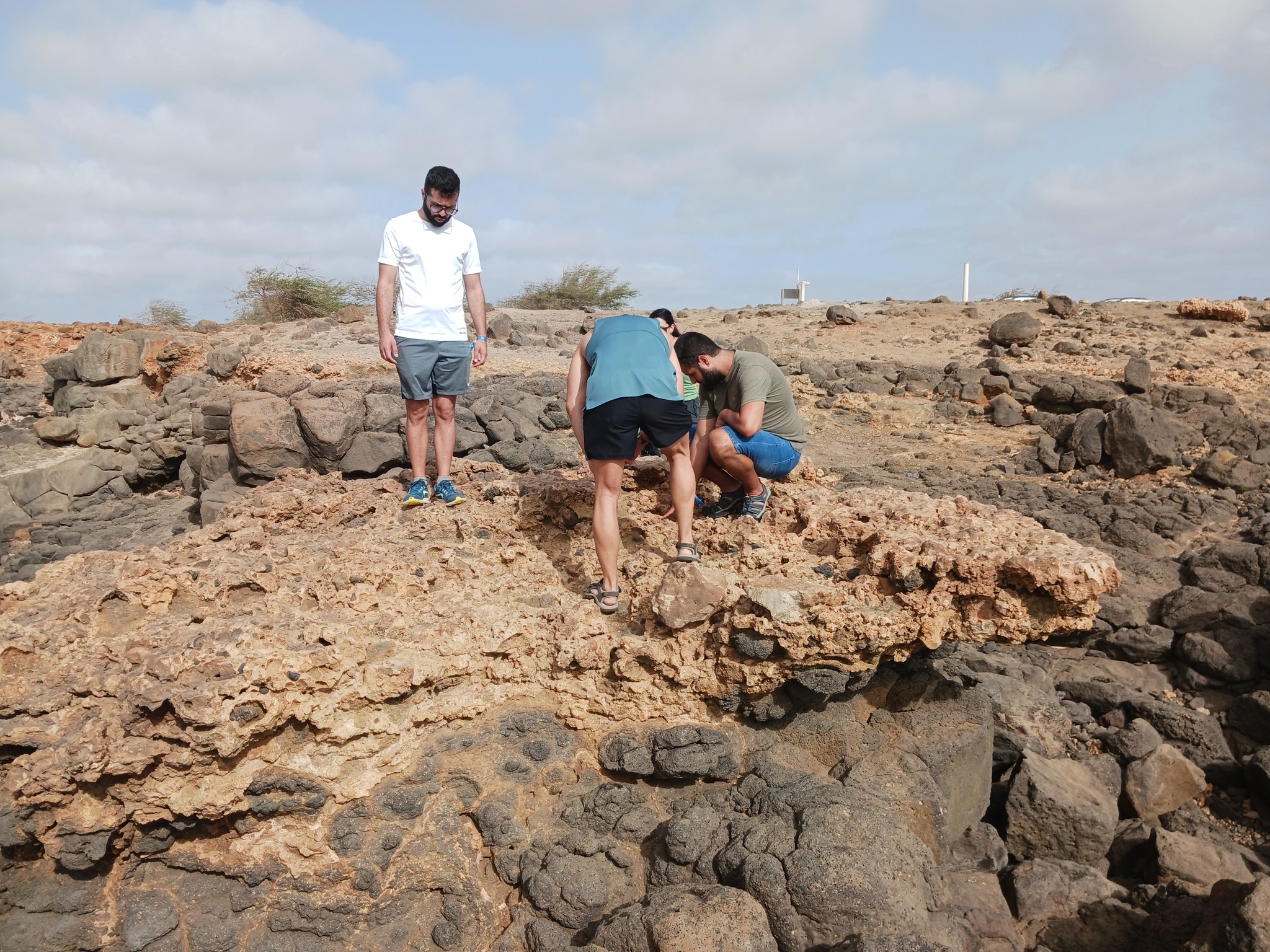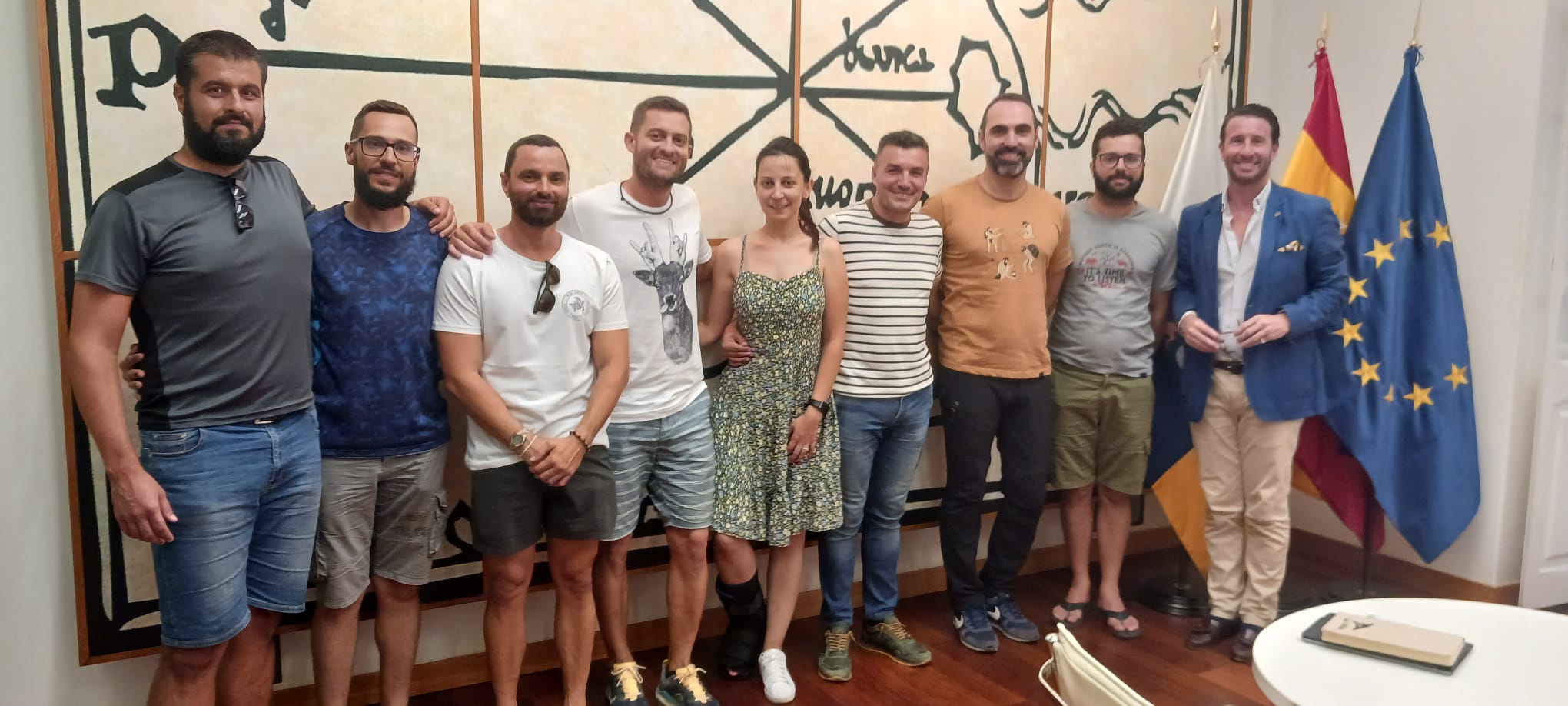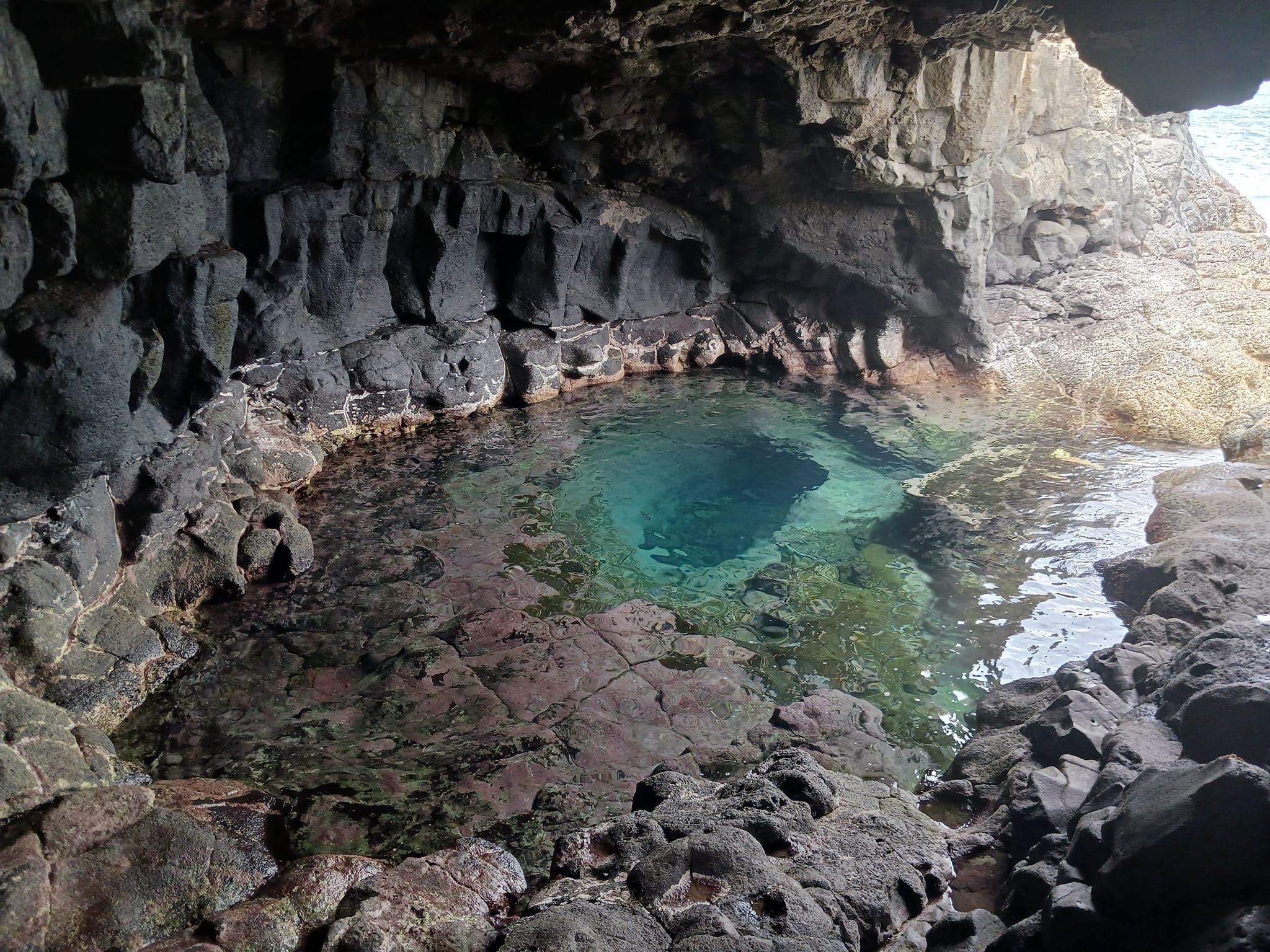This campaign, conducted in collaboration with the universities of La Laguna, Las Palmas de Gran Canaria, Castilla-La Mancha, and Cape Verde, aims to identify the potential of volcano tourism in the region.
Researchers from the Volcanological Institute of the Canary Islands (INVOLCAN), the Institute of Technology and Renewable Energies (ITER), University of La Laguna (ULL), University of Cape Verde (UniCV), University of Castilla-La Mancha (UCLM), and University of Las Palmas de Gran Canaria (ULPGC) recently carried out a scientific campaign in the islands of Sal and Boa Vista (Cape Verde) to assess the geotouristic points of interest in these island systems as part of the VOLTURMAC project.
This campaign is part of the VOLTURMAC project (Strengthening Volcano Tourism in Macaronesia), which seeks to analyse, evaluate, and identify the potential of volcano tourism in the region. The researchers focused their fieldwork on identifying, characterizing, mapping, and assessing the sites of geological and geomorphological interest (LIGs) on the islands of Sal and Boa Vista.
In the island of Sal, 10 places of potential geotouristic interest were evaluated, including Salinas de Pedro Lume, Regona, Buracona, Monte Leste, Terra Boa, Monte Grande, Shark Bay, Morro Vermelho da Rocha, Serra Negra, and Bahía Murdeira. Meanwhile, on the island of Boa Vista, 14 places were studied, such as Ribera de Água-Playa Chave, Punta del Sol, Rocha Estancia-Monte San Antonio, Playa Santa Mónica, Monte Vermelho, Paria Curral Velho, Praia Joa Barroso, Chá y Praia de Ervatoa, Desierto Viana, Bufadeira, Espingueira, Bahía Gata, and Campo da Serra.
Before returning to the Canary Islands, the research team met in the capital of Cape Verde, Praia (Santiago Island), with Mr. Jorge Cólogan González Massieu, representative of the Canarian Foundation for External Action in Cape Verde, to present the main results of the VOLTURMAC project in Cape Verde.
This scientific campaign in Cape Verde was made possible thanks to the VOLTURMAC project «Strengthening Volcano Tourism in Macaronesia» (MAC2 / 4.6c / 298) led by the Volcanological Institute of the Canary Islands (INVOLCAN) and co-financed by the European Commission through the INTERREG VA Spain-Portugal MAC 2014-2020 Territorial Cooperation Program.
The overall objective of the VOLTURMAC is to contribute to the strengthening of the conservation, protection, promotion, and development of the natural and cultural heritage associated with volcanic phenomena in Macaronesia, through the enhancement of volcano tourism.
The initiative demonstrates the commitment and collaboration between various institutions to promote sustainable and responsible tourism in volcanic areas, which will allow for the economic and social development of these regions while protecting and preserving their valuable natural and cultural heritage.

